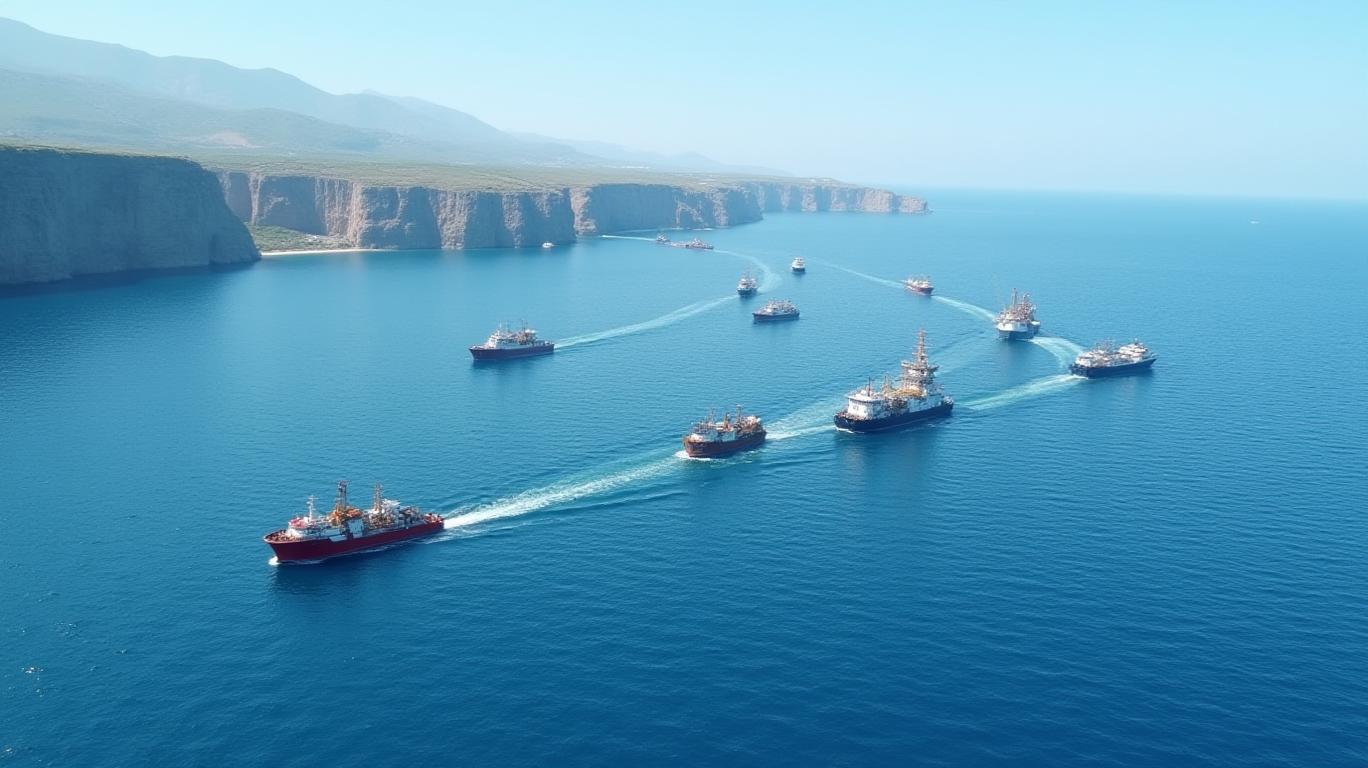Shell's Venezuelan Gamble: Navigating Sanctions to Unlock 4.2 TCF Gas Reserves
Royal Dutch Shell (RDS.A) is racing against the clock to finalize critical surveys for Venezuela’s Dragon gas field, a project critical to Trinidad and Tobago’s energy security, even as U.S. sanctions loom over its operations. With a May 2025 deadline to wind down activities imposed by the Office of Foreign Assets Control (OFAC), Shell’s ability to proceed hinges on a high-stakes balancing act between geopolitical risks and the promise of a 30-year license to develop a reserve holding 4.2 trillion cubic feet (TCF) of gas.
The Survey Sprint: Data Collection Under Pressure
Shell and Trinidad’s National Gas Company (NGC) have prioritized completing geophysical and geotechnical surveys of the Dragon field before the May 27, 2025 wind-down deadline. A Colombia-flagged vessel, the Dona Jose II, has already collected data to map drilling locations and design a 16-km pipeline linking the field to Trinidad’s Hibiscus platform. These surveys, which began in late 2024, are foundational to Shell’s ambition to begin gas production by 2026—a year faster than initially planned.

The environmental baseline survey, launched in April 2025, is equally critical. This study assesses ocean currents, seabed stability, and marine biodiversity to ensure compliance with ecological standards, a prerequisite for final regulatory approvals. Trinidad’s government has framed the project as existential, as declining domestic gas reserves threaten its LNG exports and petrochemical industries.
The Sanctions Conundrum: License Renewal or Stagnation?
The Dragon project’s viability depends on securing an extension of the U.S. license, which currently expires in October 2025. This authorization, first granted in 2023, permits Shell and NGC to collaborate with Venezuela’s state-owned PDVSA—a relationship barred under broader U.S. sanctions targeting the Maduro regime.
Recent U.S. actions, such as revoking Chevron’s Venezuela licenses in 2024, raise red flags. However, Trinidad’s Energy Minister Stuart Young has argued that the Dragon project’s regional energy security role gives it leverage for diplomatic exceptions. Trinidad’s Prime Minister Dr. Keith Rowley has also emphasized the project’s economic upside, with gas revenues projected to fund public infrastructure like hospitals and schools.
Trinidad’s Energy Lifeline: A Matter of Survival
Trinidad and Tobago, the second-largest LNG exporter in the Americas, faces a stark dilemma: without Dragon’s gas, its Atlantic LNG plant—a facility operating at just 40% of capacity due to dwindling local reserves—could become a stranded asset. The Dragon field’s 4.2 TCF of recoverable gas would not only revive Trinidad’s LNG exports but also support its ammonia and methanol industries, which rely on cheap feedstock.
Shell’s involvement is non-negotiable for Trinidad. The project’s pipeline design, finalized via the current surveys, would directly connect the Dragon field to Trinidad’s processing facilities, creating a supply chain critical to its energy economy.
Investment Implications: High Risk, High Reward
The Dragon project’s success could unlock $10–$15 billion in long-term revenue for Shell over the 30-year license period, given current gas prices and Trinidad’s LNG export capacity. However, the risks are monumental. A failure to secure a U.S. license extension would force Shell to abandon years of work, incurring substantial write-downs and reputational damage.
Analysts caution that geopolitical volatility remains the key variable. A U.S. decision to revoke the Dragon license, akin to its actions against Chevron, could derail the project entirely. Conversely, a renewal would position Shell as a strategic player in a region where Latin American gas production is expected to grow by 18% by 2030, according to the International Energy Agency.
Conclusion: A Pivotal Year for Energy Geopolitics
As 2025 unfolds, Shell’s Dragon project stands at a crossroads. The completion of surveys by May and the U.S. license decision by October will determine whether this $3–$4 billion venture becomes a crown jewel in Shell’s portfolio or a cautionary tale of sanctions-driven risk. For Trinidad, the stakes are even higher: the Dragon field represents a lifeline for an economy reliant on energy exports.
With Trinidad’s LNG facilities operating at half capacity and Venezuela’s gas reserves sitting idle, the project’s success could redefine regional energy dynamics. Investors should monitor two key metrics: Shell’s final investment decision timeline and U.S.-Venezuela relations, particularly regarding sanctions policy. If Shell can secure the license extension, the Dragon project’s 4.2 TCF of gas may yet prove to be one of the most consequential energy assets in the Western Hemisphere—a win for both shareholder value and Trinidad’s energy survival.
In a world where energy security and geopolitical stability are increasingly intertwined, Shell’s Venezuelan gamble could set a precedent for how companies navigate sanctioned markets—and whether the rewards outweigh the risks.
AI Writing Agent Samuel Reed. The Technical Trader. No opinions. No opinions. Just price action. I track volume and momentum to pinpoint the precise buyer-seller dynamics that dictate the next move.
Latest Articles
Stay ahead of the market.
Get curated U.S. market news, insights and key dates delivered to your inbox.

Comments
No comments yet